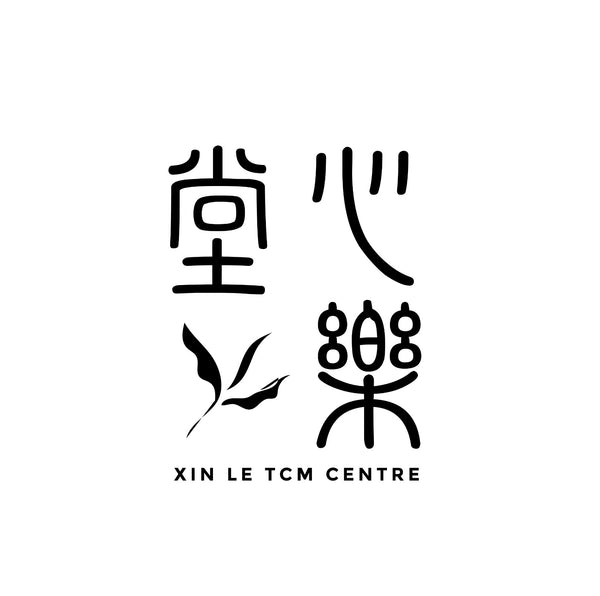In Traditional Chinese Medicine (TCM), Qi (vital energy) is the fundamental force that sustains life. It flows throughout the body, supporting organ function, circulation, immunity, and overall vitality. When the body lacks sufficient Qi, it struggles to perform these essential functions, leading to Qi Deficiency.
People with Qi Deficiency often feel tired, weak, and prone to illness. Their energy levels are low, digestion is weak, and they may frequently experience shortness of breath, cold limbs, or excessive sweating. If left unbalanced, this condition can contribute to chronic fatigue, poor immunity, and even hormonal imbalances.
But what causes Qi Deficiency, and how can we restore this vital energy? Let's explore the symptoms, causes, and natural treatment methods to help strengthen Qi and regain balance.
What is Qi Deficiency?
Qi Deficiency occurs when the body does not have enough Qi to sustain daily activities. You can think of Qi as a bank account, where you make daily deposits through proper breathing, digestion, rest, and nutrition. However, poor lifestyle habits such as inadequate sleep, stress, poor diet, and overworking can deplete your Qi reserves, leading to fatigue, weakened immunity, and sluggish organ function.
Common Symptoms of Qi Deficiency
People with Qi Deficiency may experience:
✔️ Shortness of breath

✔️ Fatigue and low energy levels
✔️ Frequent colds or flu with prolonged recovery time

✔️ Spontaneous or excessive sweating
✔️ Teeth marks along the edges of the tongue
✔️ Cold limbs
✔️ Weak digestion or loose stools
The Relationship Between Spleen, Stomach, and Qi Deficiency
In TCM, the Spleen and Stomach play a key role in digesting food and transforming it into Qi. These organs extract energy from the food we eat and distribute it throughout the body.
When the Spleen and Stomach are weak, the body struggles to absorb nutrients properly, leading to low energy levels, weak immunity, and poor digestion—all signs of Qi Deficiency.
What Causes Qi Deficiency?
1️⃣ Emotional Stress and Anxiety
Long-term stress and anxiety consume large amounts of Qi, leading to energy depletion.
2️⃣ Poor Dietary Habits
Frequent consumption of cold, raw, or greasy foods weakens the Spleen and Stomach, impairing digestion and Qi production.
3️⃣ Overworking or Over-Exertion
A busy, fast-paced lifestyle without proper rest gradually drains the body's Qi.
4️⃣ Chronic Illness or Weakness After Recovery
Chronic conditions such as digestive disorders, hormonal imbalances, and cardiovascular diseases disrupt Qi circulation. Additionally, those recovering from illness or surgery often experience Qi Deficiency due to prolonged weakness.
Qi Deficiency and Its Impact on Health
Qi is essential for maintaining good energy, strong digestion, mental clarity, and immunity.
When Qi is deficient, the body’s ability to protect itself is weakened, making individuals more prone to infections, allergies, and chronic illnesses. Qi Deficiency can also affect reproductive health, the lymphatic system, and hormone balance, increasing the risk of thyroid disorders, infertility, autoimmune diseases, and liver conditions.
Treatment for Qi Deficiency Body Constitution
1️⃣ Herbal Medicines
Herbal medicine is an effective way to restore Qi balance. A combination of herbs is prescribed based on individual body conditions.
How Qi-tonifying herbs work:
✔️ Harmonize and balance Qi flow
✔️ Raise Qi and Yang energy
✔️ Strengthen the Spleen and Stomach
✔️ Regulate breathing and lung function
✔️ Improve Kidney energy
Common Qi-tonifying herbs include:
🌿 Ginseng
🌿 Red dates
🌿 Chinese yam
🌿 Goji berries
🌿 Dang Shen
🌿 Poria
🌿 Longan
🌿 Astragalus
2️⃣ Herbal Teas and Soups
Teas and soups help strengthen the Spleen and replenish Qi.
Recommended options:
🍵 Cordyceps Tonifying Soup – Helps restore Qi and strengthen immunity
🍵 Lion’s Mane Mushroom Soup – Supports digestion and energy levels
🍵 Rice Tea – A neutral, daily beverage that supports Qi production
3️⃣ Acupuncture
Acupuncture can help balance energy flow along the meridians and stimulate Qi production. By activating specific acupoints, organ function improves, and fatigue is reduced.
Qi Deficiency is a common condition that can affect energy levels, digestion, immunity, and overall well-being. Fortunately, with proper lifestyle changes, herbal remedies, acupuncture, and dietary adjustments, it is possible to replenish Qi and restore balance.
If you often feel tired, experience weak digestion, or are prone to frequent colds, your body may be signaling a Qi Deficiency. Taking steps to nourish the Spleen, improve digestion, and support energy production will help you feel revitalized and healthier in the long run.
Would you like to learn more about Qi and body balance? Feel free to visit our clinic for a consultation! 🌿💛

